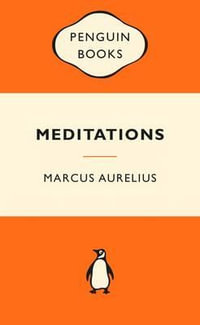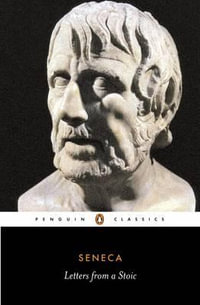| Preface | p. xi |
| Acknowledgements | p. xii |
| Introduction | p. 1 |
| Styles of reading | p. 2 |
| Arguments | p. 3 |
| Assessing premises | p. 5 |
| Inferences | p. 6 |
| The archaeology of arguments | p. 7 |
| Arguments within arguments | p. 8 |
| Back to style | p. 9 |
| The principle of charity | p. 9 |
| Five key texts | p. 10 |
| Aristotle: The Nicomachean Ethics (c.334-323 BCE) | p. 11 |
| Background | p. 11 |
| The text | p. 12 |
| The proper method of philosophy | p. 12 |
| Teleology | p. 13 |
| The Good for human life | p. 15 |
| Happiness | p. 18 |
| Moral virtue | p. 20 |
| The doctrine of the mean | p. 22 |
| The role of pleasure | p. 23 |
| Choice, freedom and responsibility | p. 26 |
| Five routes to truth | p. 28 |
| Conclusion | p. 31 |
| Rene Descartes: Meditations on First Philosophy (1641) | p. 35 |
| Background | p. 35 |
| The text | p. 36 |
| First meditation | p. 37 |
| Problems | p. 39 |
| Second meditation | p. 41 |
| Problems | p. 42 |
| The piece of wax | p. 44 |
| Third meditation | p. 45 |
| The existence of God | p. 46 |
| Fourth meditation | p. 49 |
| Fifth meditation | p. 51 |
| Problems | p. 52 |
| Sixth meditation | p. 55 |
| Problems | p. 56 |
| Outstanding problems | p. 56 |
| Conclusion | p. 57 |
| David Hume: An Enquiry concerning Human Understanding (1748) | p. 61 |
| Background | p. 61 |
| The text | p. 61 |
| Of the different species of philosophy | p. 62 |
| Of the origin of ideas | p. 64 |
| Of the association of ideas | p. 66 |
| Sceptical doubts concerning the operations of the understanding | p. 66 |
| Sceptical solution of these doubts | p. 68 |
| Of probability | p. 70 |
| Of the idea of necessary connexion | p. 71 |
| Of liberty and necessity | p. 73 |
| Of the reason of animals | p. 75 |
| Of miracles | p. 76 |
| Of a particular providence and of a future state | p. 78 |
| Of the academical or sceptical philosophy | p. 79 |
| Bertrand Russell: The Problems of Philosophy (1912) | p. 85 |
| Background | p. 85 |
| The text | p. 86 |
| Appearance and reality | p. 86 |
| The existence of matter | p. 88 |
| The nature of matter | p. 90 |
| Idealism | p. 91 |
| Acquaintance and description | p. 92 |
| Induction | p. 94 |
| Knowledge of general principles | p. 96 |
| How is a priori knowledge possible? | p. 98 |
| The world of universals | p. 99 |
| Our knowledge of universals | p. 101 |
| On intuitive knowledge | p. 104 |
| Truth and falsehood | p. 105 |
| Knowledge, error and probable opinion | p. 107 |
| The limits of philosophical knowledge | p. 109 |
| The value of philosophy | p. 111 |
| Jean-Paul Sartre: Existentialism and Humanism (1947) | p. 115 |
| Background | p. 115 |
| The text | p. 116 |
| The attack on existentialism | p. 117 |
| Humanism | p. 117 |
| Existentialism | p. 118 |
| Subjectivity | p. 119 |
| Anguish | p. 120 |
| Abandonment | p. 122 |
| Despair | p. 125 |
| The cogito | p. 126 |
| The human condition | p. 127 |
| Does it matter what you do? | p. 128 |
| Can you judge others? | p. 129 |
| A case of give and take | p. 130 |
| Humanism again | p. 130 |
| Conclusion | p. 131 |
| Glossary | p. 134 |
| Further Reading | p. 136 |
| Index | p. 137 |
| Table of Contents provided by Syndetics. All Rights Reserved. |
























